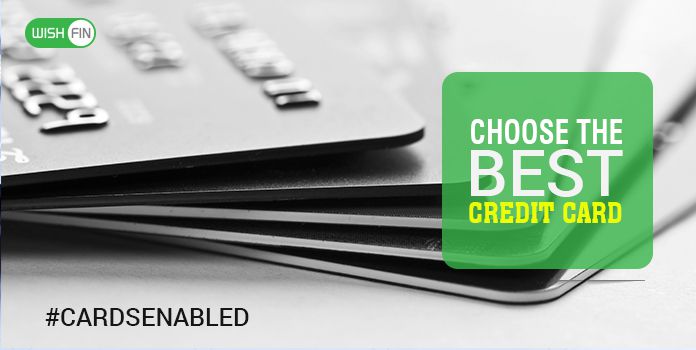How to Decide Which Credit Card is the Best One For You?

Last Updated : May 25, 2017, 2:18 p.m.
Flooded with offers of new credit cards? We can’t blame you. Looking at the day and age, the current Gen-Y are among the top borrowers, which is why credit card companies are going head over heels to snap them up as credit card users. If you are among those who are wondering which is the right credit card to choose, here are a few crucial points to help you make that decision.
Annual Interest
Credit cards give you unsecured loans. For a small period, these loans can even be interest-free. However, after that time, interest rates are charged. For instance, SBI Simply Save Card gives you interest-free credit period of 20-50 days if previous months’ outstanding balance is paid. Finance charges can be up to 3.35% per month, basically about 40% per annum. If your credit-worthiness is good, credit card companies give you better interest rates. In case you opt for a balance transfer, you can save a lot of money while paying your credit card dues. This can be done by transferring the outstanding balance of other banks’ credit cards and availing a lower rate of interest.
Minimum Repayment
When you come to think of it, credit cards are generally used as the last resort when it comes to borrowing. This could be due to any reason, including cash crunch and irregular budgeting. Believe it or not, budgeting is also one of the main reasons why card users carry a credit debt for a long time. At times like these, minimum repayment becomes an important factor. A card which asks you to pay 10% as minimum repayment a month isn’t a good option. A figure close to 5%, like in the case of SBI Simply Save Card , is manageable. In case you are running an EMI scheme, the minimum payment is often the monthly payout that you agreed upon. Such a comfortable repayment ensures you are not under strain.
Rewards and Benefits
Credit cards come with new offers and benefits to lure customers. Simply, ignore those cards giving discount coupons with an expiry date. Instead, opt for the ones that give rewards points for spending and also cash back. A credit card will be used many times over its lifetime, so getting a card that gives incentives based on your spending makes more sense than those giving discount coupons that will end in 3-6 months.
The best cards tend to incentivize you for certain spends like dining, movies, department store shopping and buying grocery. For example, SBI Simply Save Card gives you 10 reward points per ₹100 spent on these activities. On all your other spends, you earn 1 reward point per ₹100 spent. With SBI Simply Save Card Use, you can use your reward points to pay the unpaid balance on your credit card, or convert them to a wide array of gifts!
Cheaper fuel is another upside for getting a good credit card. Fuel outlets impose 1% fuel surcharge usually. You can totally avoid this by spending at least ₹500 through your credit card. If you buy ₹7,000-8,000 worth fuel a month, this will take your fuel bill to ₹90,000. Ordinarily, a 1% surcharge means you will have to shell out ₹900 extra. But with SBI Simply Save Card, you save ₹900 just on fuel alone!
Yearly Fee
The best credit cards will also have a low yearly fee, which will go easy on your pocket. Cards that charge ₹1,000-5,000 may not be suitable for an average person. The trick here, however, is to understand if there is any way you can pay less and still gets awesome benefits. An annual fee of ₹400-500 hits the sweet spot, but the provision of a renewal fee reversal is what makes some credit cards the best. SBI Simply Save Card , for instance, reverses the ₹499 renewal fee if annual spends for last year are at least ₹90,000. Plus, there is no add-on fee for cards meant for parents, spouse and children above the age of 18 years.
Other Charges
Credit cards help deal in non-cash transactions, by swiping them across retail points. However, they also are quite handy to get hard cash from ATMs. Cash advance fees are typically 2-3% of the transaction amount, with a minimum ₹300 charged. The amount of money they give is also important. Some cards will give maximum ₹8,000-10,000 when you withdraw cash via credit card . A bigger limit is often better.
Besides the cash advance fee, also find out other charges and compare them. Charges for cheque pick-up, payment dishonour, late payment, card replacement, foreign currency transaction, cash payment and rewards redemption are billed. The best credit cards will have low charges, and a fair comparison will help you separate the wheat from the chaff.
